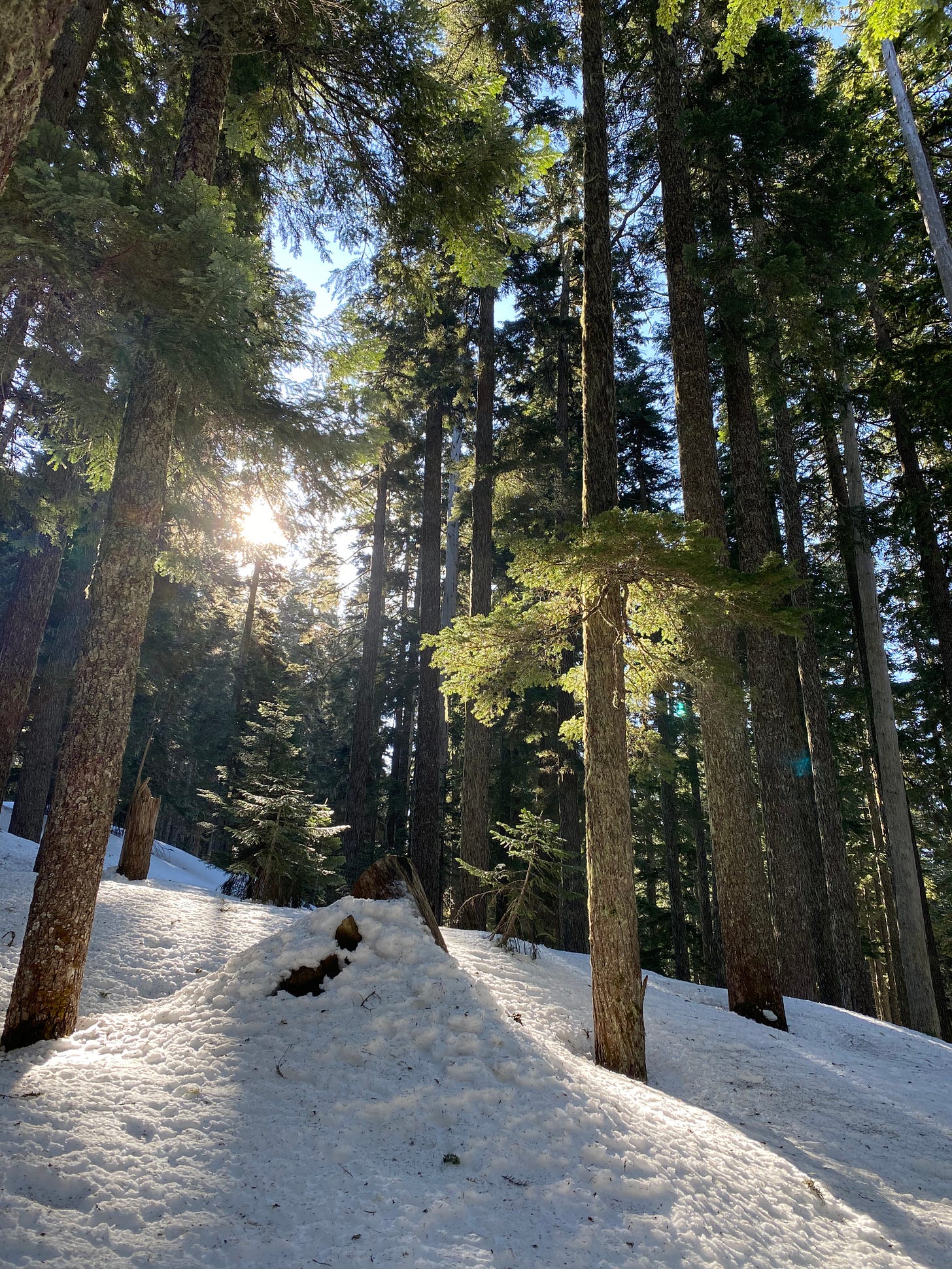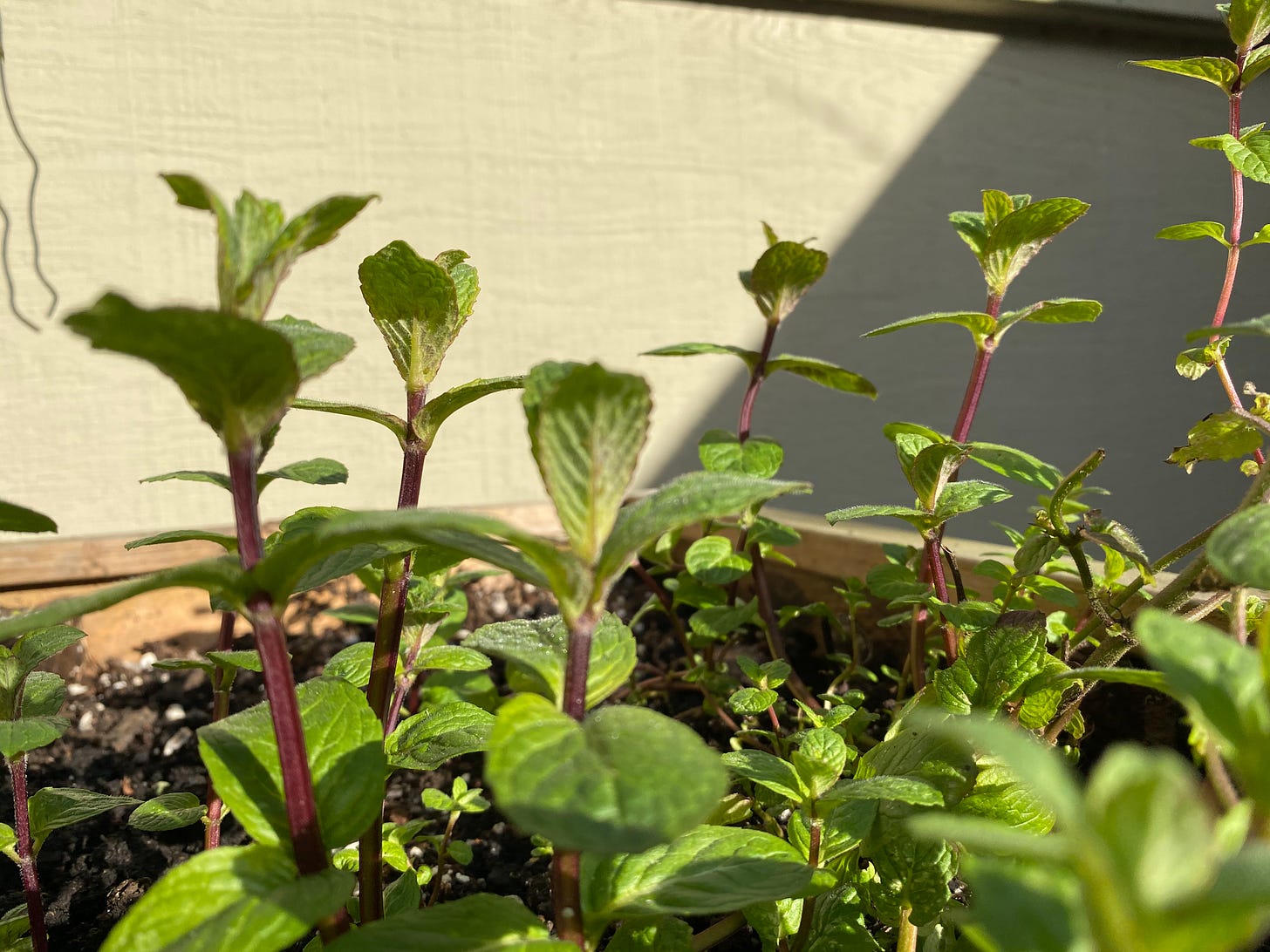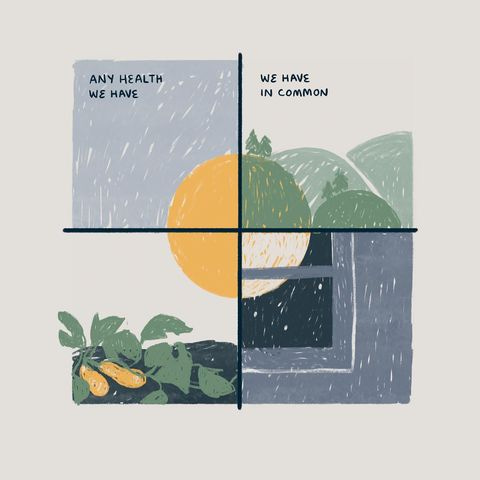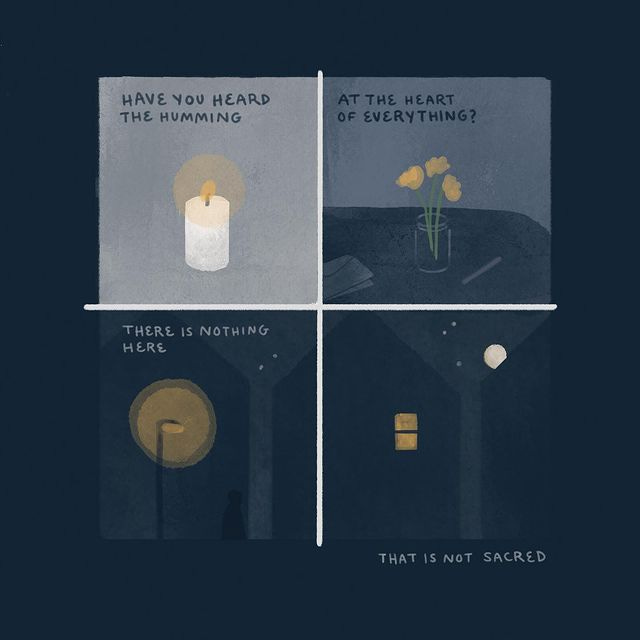
I have been thinking this week about the notion of solidarity. It’s a word we throw around in Leftist circles quite a bit but still doesn’t have much purchase, as far as I can tell, in the larger community. But it’s something we’re all getting a lesson in, of late. Boy howdy are we.
What’s all this then, you might be asking. What’s the need for another word for what I’m trying to do here, which is be kind? Well, I have nothing against kindness, and some semblance of it is a necessary precondition for what I’m talking about. There’s a Marshallese saying that I quite like: Jouj eo mour eo, laj eo mej eo. Kindness is life, cruelty is death. A pretty straightforward way to operate, in your day-to-day.

But kindness alone is not enough to meet the present moment. Think about the kind people in your life: in mine, they are for the most part people for whom the thoughts and deeds that make up kindness seem second nature. They are slow, even impossible to anger; they have a positive word about everyone and make peace wherever they can.
These qualities are wonderful to have and I think they are aspirational. But why I’m thinking about solidarity rather than kindness is because what is happening now demands something a little more of us. We must, in this moment, reach beyond unconscious niceness into intentional solidarity: the active, conscious process of recognizing one’s place in a mass grouping of people who share a common set of interests. (That mass grouping can be called a lot of things—the proletariat, the working class, the 99%—but the distinction is roughly the same. Do you own all that creates your own survival, and that of others—the farms, the factories, the tech firms—or are you subordinate to those who do? The parts of our world that lack a commitment to solidarity teach us to thin-slice that much bigger group and try to identify what makes us opposed to one another; it’s how and why the white race was invented in the years preceding and including the American Civil War.)
Belonging to that mass grouping means that there’s a near-certainty that the interests of the people who rule the world through their ownership of those productive enterprises have interests that are directly opposed to yours. And in America, that opposition to your interests is why we had the 2008 financial crisis, why we have a generation drowning in their student debt, why the planet is being choked to death on fumes, why we have the heinous phrases “school lunch debt” and “medical bankruptcy” in our common lexicon.

We cannot resolve these crises through kindness alone. We require solidarity. Put another way: To be kind is to do no harm. But to express solidarity is a commitment to fight. We must be slow to anger when it concerns one another—and we must stay angry at the larger forces that have taken so much from so many. And we must put that anger to use, we must stay in motion so that it doesn’t consume us where we stand.
Any health we have, we have in common. I think people are starting to learn that. I think we are starting to learn that our function in the world is not to seek our own fulfillment on whatever terms we deem necessary, but to discover fulfillment in the sacrifice that being a member of something--a family, a community, a nation, a world--requires of us at extraordinary times.
In college my friends and I adopted (maybe even appropriated) a motto: Ubuntu. It’s a Xhosa word meaning, loosely, “I am because you are.” I wrote it on my mortarboard and walked across the field at Ohio Stadium with it on display. And while it’s true that I wouldn’t have gotten through college without my friends, that ethos rings even more true now. No one does anything alone, really. And I think the scales are falling off our eyes in that regard. Your social connections will help you get through this trying time. But so will the grocery workers, delivery drivers, nurses and medical technicians, and everyone else in that essential class who, ant-like, prop up the weight of the world on their backs.
Along these lines one of the most brilliant things I’ve come across in the midst of this crisis comes from poet Anne Boyer. I heard it on the TrueAnon podcast; you can listen to the excerpt here. It’s so good that you should read Boyer’s newsletter in its entirety, but here are the instructive bits (emphasis mine):
These are the same types who say the only thing to fear is fear, which of course is not true, because fear educates our care for each other -- we fear a sick person might be made sicker, or that a poor person's life might be made even more miserable, and we do whatever we can to protect them because we fear a version of human life in which everyone lives only for themselves. I am not the least bit afraid of this kind of fear, for fear is a vital and necessary part of love. And this fear, which I love, is right now particularly justified, because we have a pernicious virus that travels inside the healthy to sicken and kill the already fragile, and therefore requires that the healthy and strong deepen their moral commitments for the benefit of the sick and weak. We must learn to do good for the good of the stranger now. We now have to live as daily evidence that we believe there is value in the lives of the cancer patient, the elderly person, the disabled one, the ones in unthinkable living conditions, crowded and at risk.
One more:
The way social distancing works requires faith: we must begin to see the negative space as clearly as the positive, to know what we don't do is also brilliant and full of love. We face such a strange task, here, to come together in spirit and keep a distance in body at the same time. We can do it. I am writing this because I want the good in us to break through the layers of hateful nonsense we've been drowning in. I think we can be good, but we also must prepare for an amplification of evil’s evil. The time when the invisible becomes visible is at hand.
For whatever reason—probably because I just finished watching the series again—that last line felt very Twin Peaks to me. That show is a rich, weird vein of humanity and wisdom and love. It feels fitting for our time, really: a natural force out of anyone’s control wreaks havoc on people who’d otherwise be living sleepy, normal lives; petty schemers exploit the air of terror and confusion for their own more immediate ends. But all the while good people stand up to that wave of evil, in acts large and small. That latter group has its embodiment in Agent Dale Cooper, a font of wisdom and love whose criminal investigation ends up drawing him into a battle of cosmic forces.

Cooper says something to a stuffy superior that jumps back out at me each time I watch it:
I know the moves I’m supposed to make, and I know the board. I’ve been doing a lot of thinking lately, and I’ve started to focus out beyond the edge of the board at a bigger game. The sound wind makes through the pines. The sentience of animals. What we fear in the dark, and what lies beyond the darkness….I’m talking about seeing beyond fear, Roger. About looking at the world with love.
Cooper is nibbling at an important truth here: it is impossible to fight for the world unless you love the world. You must draw strength from the little things to take on the big things. And I think the other big lesson at the heart of Twin Peaks is that you will not always succeed in that fight. It’s no knock on you, it just won’t always work. But you have to fight anyway.
There’s a quote I see surface from time to time that’s often misattributed to The Talmud, though it actually comes from a mashup of Rabbinical sources, most notably Pirkei Avot. Regardless of its source, I think it ties together nicely what I’ve been trying to say here, and so I’ll end with it today. It reads:
You are not obligated to complete the work, but neither are you free to abandon it.
Alright, get to it. At home, obviously.





